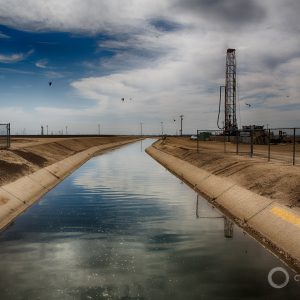The Stream, November 15: Millions Enter Poverty Due to Natural Disasters
The Global Rundown
Floods, droughts, and other natural disasters around the world force millions of people into poverty each year, according to a World Bank report. A spike in cholera cases this month raises the specter of a major outbreak in Yemen. Global methane emissions from hydropower reservoirs are underestimated, new research says. The U.S. federal government has agreed to discuss permits for the Dakota Access oil pipeline with the Standing Rock Sioux Tribe. One of the original proponents of London’s Thames Tideway tunnel is now questioning the project’s worth.
“In broad terms I think it is a waste of about £4 billion … and it is largely the Thames Water customers that will pick up the bill.” –Chris Binney, calling into question the value and efficacy of the Thames Tideway tunnel project to control London’s sewage overflows. Binney was chairman of a group in 2005 that encouraged London to build the “super sewer,” which is currently under construction. (Guardian)
By The Numbers
26 million people Number that fall into poverty around the world each year due to natural disasters such as floods, droughts, and storms, according to a report by the World Bank. Taking this into account, the report estimates that disasters cost the global economy $520 billion annually. Guardian
4,119 Number of suspected cholera cases in Yemen as of Sunday, according to the World Health Organization. The agency said a rapid increase in cases has sparked “concerns of a significant outbreak” in the country, where two-thirds of the population lacks access to safe drinking water and sanitation. Reuters
Science, Studies, And Reports
Hydropower dam reservoirs release 25 percent more methane from rotting vegetation than previously estimated, according to a study published in the journal BioScience. Overall, the methane accounts for 1.3 percent of human greenhouse gas emissions each year, though the study suggests controlling nutrients and algae in the reservoirs could reduce those emissions. SciDev
On The Radar
The U.S. Departments of the Army and the Interior announced Monday that they will discuss the controversial Dakota Access oil pipeline project with the Standing Rock Sioux Tribe, potentially revisiting federal approval for the line to cross under Lake Oahe. Concerns that an oil spill could contaminate water supplies for tribal communities, as well as the destruction of sacred sites, have fueled widespread protests. Reuters
A news correspondent for Circle of Blue based out of Hawaii. She writes The Stream, Circle of Blue’s daily digest of international water news trends. Her interests include food security, ecology and the Great Lakes.
Contact Codi Kozacek





